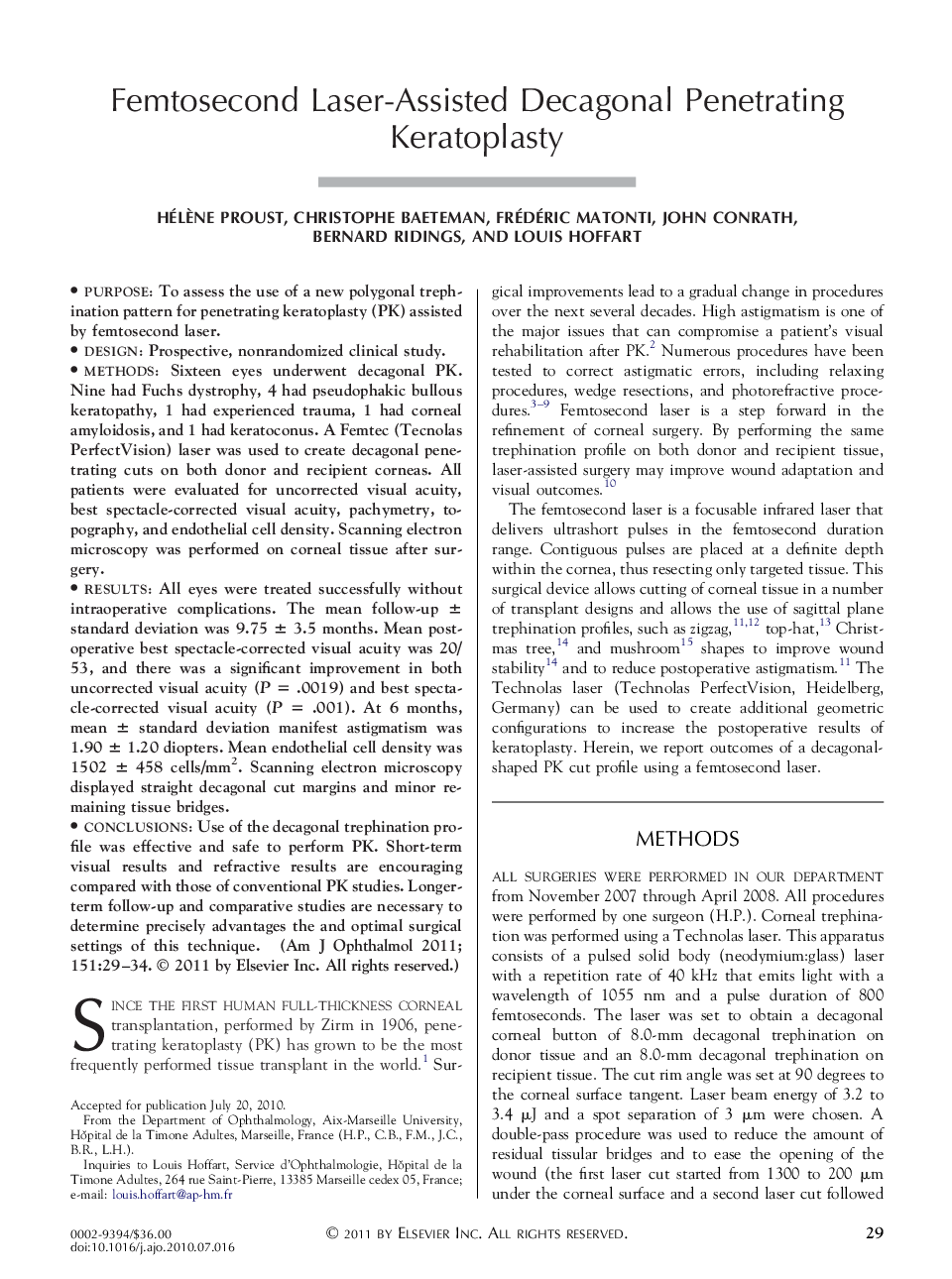| کد مقاله | کد نشریه | سال انتشار | مقاله انگلیسی | نسخه تمام متن |
|---|---|---|---|---|
| 4003540 | 1602177 | 2011 | 6 صفحه PDF | دانلود رایگان |

PurposeTo assess the use of a new polygonal trephination pattern for penetrating keratoplasty (PK) assisted by femtosecond laser.DesignProspective, nonrandomized clinical study.MethodsSixteen eyes underwent decagonal PK. Nine had Fuchs dystrophy, 4 had pseudophakic bullous keratopathy, 1 had experienced trauma, 1 had corneal amyloidosis, and 1 had keratoconus. A Femtec (Tecnolas PerfectVision) laser was used to create decagonal penetrating cuts on both donor and recipient corneas. All patients were evaluated for uncorrected visual acuity, best spectacle-corrected visual acuity, pachymetry, topography, and endothelial cell density. Scanning electron microscopy was performed on corneal tissue after surgery.ResultsAll eyes were treated successfully without intraoperative complications. The mean follow-up ± standard deviation was 9.75 ± 3.5 months. Mean postoperative best spectacle-corrected visual acuity was 20/53, and there was a significant improvement in both uncorrected visual acuity (P = .0019) and best spectacle-corrected visual acuity (P = .001). At 6 months, mean ± standard deviation manifest astigmatism was 1.90 ± 1.20 diopters. Mean endothelial cell density was 1502 ± 458 cells/mm2. Scanning electron microscopy displayed straight decagonal cut margins and minor remaining tissue bridges.ConclusionsUse of the decagonal trephination profile was effective and safe to perform PK. Short-term visual results and refractive results are encouraging compared with those of conventional PK studies. Longer-term follow-up and comparative studies are necessary to determine precisely advantages the and optimal surgical settings of this technique.
Journal: American Journal of Ophthalmology - Volume 151, Issue 1, January 2011, Pages 29–34